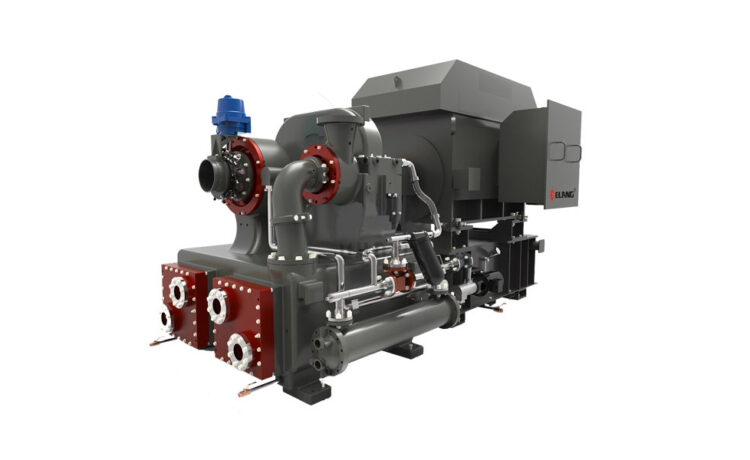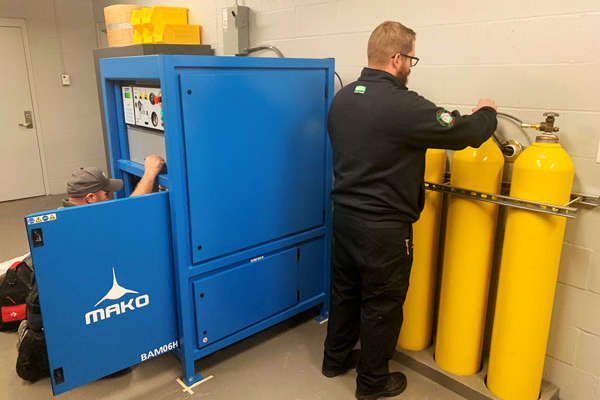Managing compressor waste oil has become a critical environmental challenge as industries strive to meet stricter sustainability goals. Improper disposal of waste oil not only harms ecosystems but also poses significant regulatory risks for businesses. With 2025 on the horizon, the push for innovative, eco-friendly solutions has never been more urgent.
Sustainable waste oil management isn’t just about compliance; it’s a chance to reduce environmental impact while optimizing operations. Emerging technologies and practices are paving the way for smarter, greener approaches that align with global sustainability efforts. Businesses adopting these solutions can lead the charge toward a cleaner, more responsible future.
Understanding the Environmental Impact of Compressor Waste Oil
Improper disposal of compressor waste oil contributes to significant environmental harm. Waste oil often contains contaminants like heavy metals and hazardous chemicals that can seep into soil and water, harming ecosystems and posing risks to human health.
Air pollution arises when waste oil is burned without proper treatment, releasing harmful emissions. These include volatile organic compounds (VOCs) and particulate matter, which contribute to poor air quality and climate change.
Failing to manage waste oil sustainably increases resource wastage. Recycling and reusing lubricant oil saves finite resources like crude oil and reduces energy consumption during production. Sustainable practices such as these align with modern environmental regulations and corporate social responsibility standards.
Organizations like Fluid-Aire Dynamics emphasize efficient compressor waste oil management to mitigate these impacts. By promoting advanced waste oil collection and recycling solutions, they help businesses minimize environmental damage while maintaining compliance. Sustainable strategies allow companies to protect ecosystems and contribute to the global push for reduced industrial pollution.
Key Regulations Governing Waste Oil Disposal in 2025
Authorities worldwide are enforcing stricter regulations for waste oil disposal to protect ecosystems and human health. Common mandates involve proper classification, storage, transportation, and recycling of compressor waste oil.
- Hazardous Waste Classification: Compressor waste oil is often classified as hazardous due to contaminants like heavy metals and hydrocarbons. Businesses must ensure waste oil is accurately identified to avoid legal penalties.
- Storage Standards: Regulations emphasize secure storage to prevent leaks and spills. Containers must meet specific standards, such as secondary containment systems, to comply.
- Transportation Compliance: Waste oil transporters require permits and tracking documentation. Failing to verify licensed carriers may result in fines.
- Recycling Directives: Many regions mandate recycling programs to minimize landfill use. Facilities utilizing advanced recycling technologies often align with these laws.
Monitoring updates on regulatory frameworks is essential. Companies like Fluid-Aire Dynamics assist businesses in navigating these requirements while promoting sustainable compressor waste oil management.
Effective Methods for Collecting and Storing Compressor Waste Oil
Proper collection and storage of compressor waste oil are essential to meet environmental standards and prevent contamination. Streamlined processes can enhance sustainability while maintaining regulatory compliance.
Designated Collection Systems
Using designated collection systems ensures safe and accurate gathering of waste oil. Closed-loop systems, for example, minimize the risk of spills and exposure to contaminants. Facilities adopting such methods align with eco-friendly practices and reduce operational risks.
Segregated Storage Containers
Employing segregated storage containers prevents cross-contamination between waste oil and other substances. Containers made from corrosion-resistant materials, with clear labeling, help maintain safety standards and simplify waste classification for recycling or disposal.
Secondary Containment Units
Installing secondary containment units is critical for spill prevention. These units, often required by regulations, catch leaks or overflows during handling and storage. They add an extra layer of protection to the environment and on-site operations.
Routine Maintenance of Storage Equipment
Regular inspection and maintenance of storage equipment identify wear or potential failures. Seals, valves, and containment areas should be routinely checked to prevent hazardous leaks. This proactive approach extends equipment life and reduces the likelihood of compliance violations.
Digitized Tracking Systems
Adopting digitized tracking systems records waste oil quantities and storage conditions accurately. These systems also provide documentation for reporting purposes, supporting businesses in maintaining transparency and adhering to Compressor Waste Oil Management protocols outlined by regulators.
Partnerships With Certified Providers
Partnering with certified waste oil collection and disposal services simplifies compliance. Organizations like Fluid-Aire Dynamics facilitate responsible waste oil handling by adhering to environmental standards and offering industry expertise. These partnerships ensure ethical and sustainable practices.
How Businesses Can Implement Waste Oil Recycling Solutions
Businesses can adopt effective waste oil recycling solutions to comply with regulations and promote sustainability. Implementing these solutions reduces environmental hazards and enhances operational efficiency.
-
Establish Collection Systems
Businesses can install specialized collection equipment designed for compressor waste oil management. These systems, like automated drain systems, ensure efficient and safe waste oil collection without manual handling.
-
Utilize Certified Recycling Services
Partnering with licensed recycling companies ensures that collected waste oil is processed responsibly. Certified facilities use advanced techniques like vacuum distillation and hydrotreating to reclaim reusable oil while safely disposing of contaminants.
-
Train Employees
Employees receive training on proper waste oil handling procedures to minimize spills and contamination. Awareness programs help workers identify and safely store hazardous substances, adhering to regulatory requirements.
-
Install Monitoring Technology
Digital systems can track waste oil volumes and categorize contaminants for easier recycling. These technologies assist with compliance documentation and improve waste oil transfer processes.
-
Adopt Circular Practices
Reusing reclaimed oil for operational activities, such as industrial lubrication, reduces resource consumption. Businesses benefit financially by minimizing the need to purchase new oil.
-
Engage Environmental Consultants
Companies like Fluid-Aire Dynamics offer expertise in compressor waste oil management. They provide tailored solutions that align recycling efforts with business goals and evolving environmental regulations, paving the way for sustainable practices.
Integrating these measures supports businesses in meeting sustainability objectives while adhering to the strict waste oil management standards of 2025.
Partnering with Certified Disposal Services to Ensure Compliance
Certified disposal services play a crucial role in managing compressor waste oil sustainably and meeting 2025’s strict regulatory standards. These services specialize in handling hazardous waste, ensuring that waste oil containing contaminants like heavy metals and hydrocarbons is processed safely. Businesses partnering with certified providers mitigate risks of non-compliance and avoid environmental penalties.
Certified services maintain proper documentation to verify legal compliance. This includes manifests for waste transportation, records of disposal methods, and certifications of recycling where applicable. Such records simplify audits and regulatory inspections, reducing administrative burdens for businesses.
Experts at certified disposal services implement advanced recycling technologies to reclaim valuable resources from waste oil. For example, re-refining processes recover usable lubricants, supporting circular economy practices. By working with these providers, businesses not only conform to environmental regulations but also contribute to sustainable resource utilization.
Fluid-Aire Dynamics, a key player in compressor waste oil management, emphasizes collaboration with certified disposal providers. This approach ensures efficient waste handling, aligns with corporate sustainability goals, and addresses evolving environmental compliance requirements.
Innovations in Waste Management Technology for Industrial Compressors
As industries face increasing pressure to meet stringent environmental standards, adopting advanced waste oil management practices has never been more critical. Leveraging innovative technologies and certified recycling services allows businesses to navigate complex regulations while reducing their ecological footprint.
By prioritizing sustainable solutions, companies can transform waste oil management from a compliance challenge into an opportunity for operational efficiency and environmental stewardship. With the right strategies and partnerships, businesses are well-positioned to lead the way in responsible resource utilization and contribute to a cleaner, greener future.







